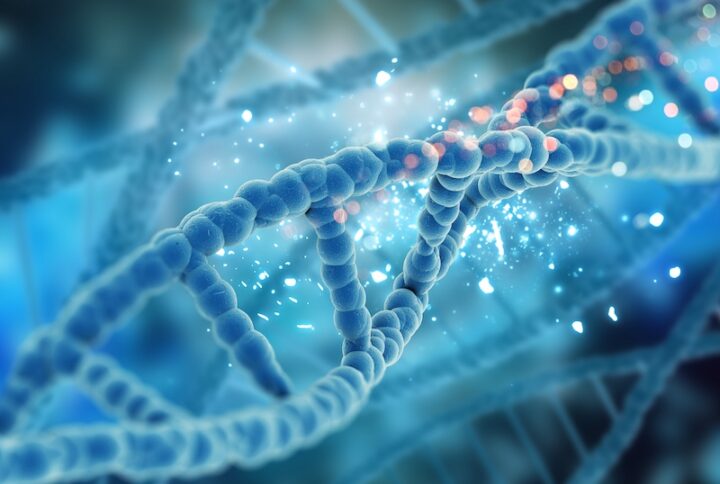Molecular biology is the study of the structure and function of molecules and large biological molecules, especially how genes are inherited and how proteins are made. It primarily studies the interactions between the various systems of a cell, including the interactions between DNA, RNA, proteins, and their synthesis.
Every living organism contains lots of types of molecules, but molecular biologists typically focus on genes and proteins. Proteins carry out a wide range of tasks within cells, while genes store the instructions needed to produce these proteins.
Molecular biology grew as a combination of genetics and biochemistry. Genetics helped us understand how traits are passed down, while biochemistry showed how cells work through chemical processes. When scientists discovered the structure of DNA and how it controls the production of proteins, they began to connect these two areas. This led to molecular biology, a field that looks at how life works at the tiniest level: inside our cells.
What’s the relationship between genes and proteins?
Just like anything else, living things are also made of chemicals. Molecular biologists study how molecules interact with one another in living organisms to perform the functions of life.
Genes are pieces of information stored on large nucleic acid molecules, while proteins are separate molecules on their own. Both genes and proteins, and their connection to each other, are crucial areas of study.
Genes and proteins are closely connected because genes provide the instructions for making proteins. Here’s how the relationship works:
Genes: A gene is a DNA segment containing the information needed to produce a specific protein. This information is encoded in the sequence of nucleotides (the building blocks of DNA).
Protein Synthesis: The process starts when a gene is copied into a molecule called messenger RNA (mRNA) in a process called transcription. The mRNA then carries the genetic instructions from the DNA in the nucleus to the ribosome in the cytoplasm.
Translation: At the ribosome, the mRNA is “read” to assemble a chain of amino acids in the correct order, a process called translation. The chain of amino acids then folds into a specific 3D shape to become a functional protein.
In short, genes are the blueprints, and proteins are the final products that carry out many essential functions in the body.
The long chain of these interactions is what many molecular biologists seek to fully document. Every step in a functional pathway is something that a disease can disrupt or a medication can target. Gathering this information deepens our understanding of how biology functions and supports the work of other scientists aiming to modify biological systems. These include pharmaceutical researchers and genetic engineers.
What are the Molecular Biology Lab Methods?
Molecular biology is known for its distinctive suite of laboratory methods. Molecular biologists make extensive use of:
Cloning: This involves creating copies of a gene or an organism. Gene cloning is often used to insert a gene into another organism or to study its function. Cloning is used in medicine to produce insulin, in agriculture to create GMOs, and in research to study diseases, test new drugs, and understand how genes function.
Polymerase Chain Reaction (PCR): A technique used to make many copies of a specific segment of DNA. PCR is widely used in genetic research, diagnostics, and forensics, and it has even been used for COVID-19 testing.
Gel Electrophoresis: A method used to separate DNA, RNA, or proteins based on their size and charge. It helps visualise the results of PCR, restriction digestion, or protein expression. Gel electrophoresis is used for DNA fingerprinting in criminal investigations, paternity testing, and various types of genetic research.
Blotting: A method used to detect specific proteins in a sample. After proteins are separated by gel electrophoresis, they are transferred to a membrane and probed with antibodies. Blotting is used in disease diagnosis, drug development, and even cancer research.
The future of Molecular Biology
Molecular Biology is an already large and still growing field. Modern techniques, particularly those developed for genetics, are also altering the course of molecular biology research, like CRISPR. Many more advances in medicine, ecology, and other areas will come out of molecular biology research as this science continues to grow and advance.
Molecular biology is also expected to play a crucial role in environmental conservation through innovations like eDNA for biodiversity monitoring and bioengineering for sustainable agriculture. As technology continues to evolve, it will remain at the forefront of scientific breakthroughs that address both health and environmental challenges.
Techmate is a UK-based supplier that exclusively sells Carl Roth chemicals, providing a reliable source for those in need of premium chemicals and laboratory equipment. Whether conducting scientific research, experiments, or industrial work, Techmate ensures you have access to top-notch products to meet your needs. For those seeking trusted chemical supplies, Techmate is the go-to supplier for Carl Roth products in the UK.
Visit our website to explore our full range of products and place your order today.

